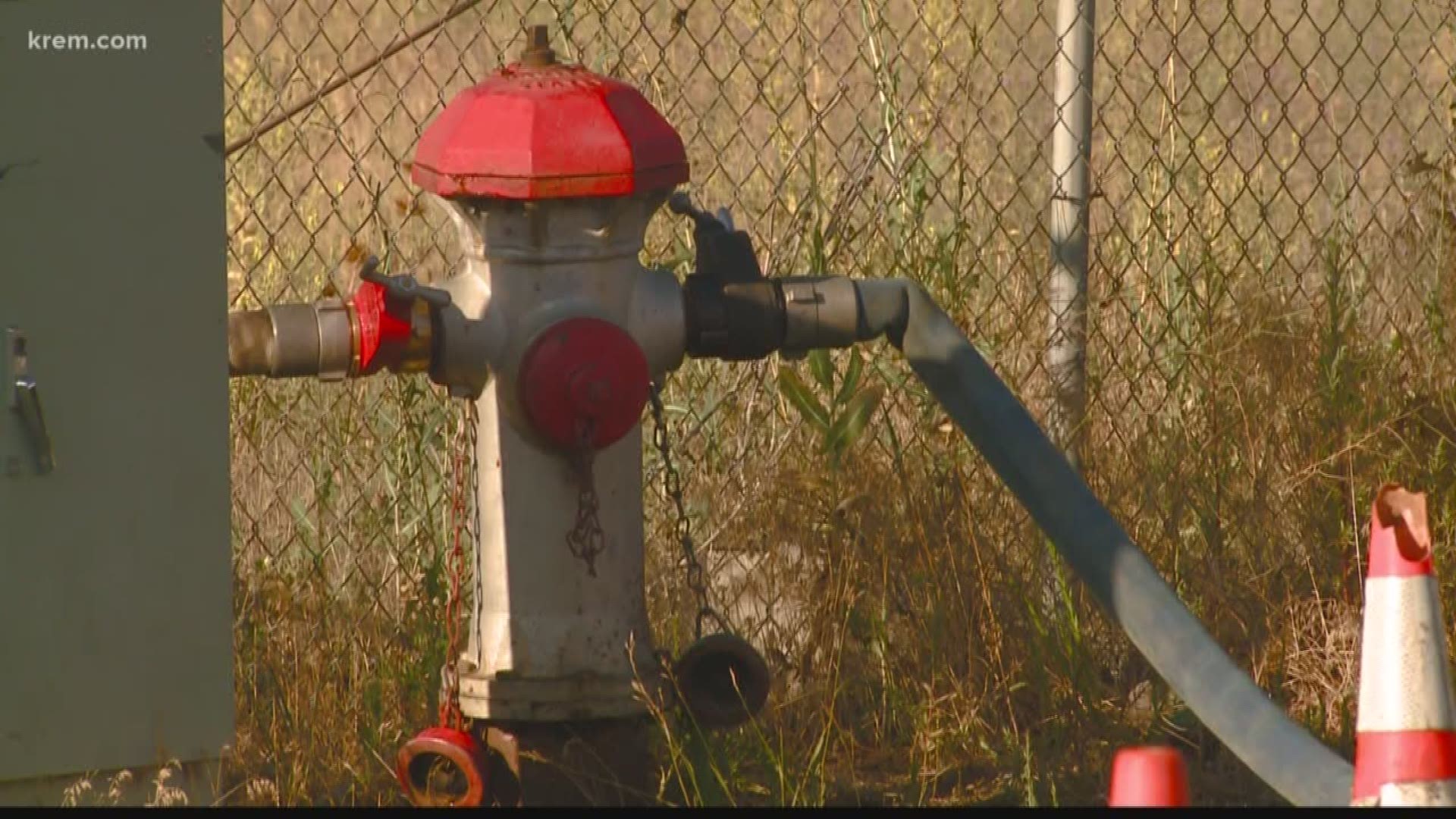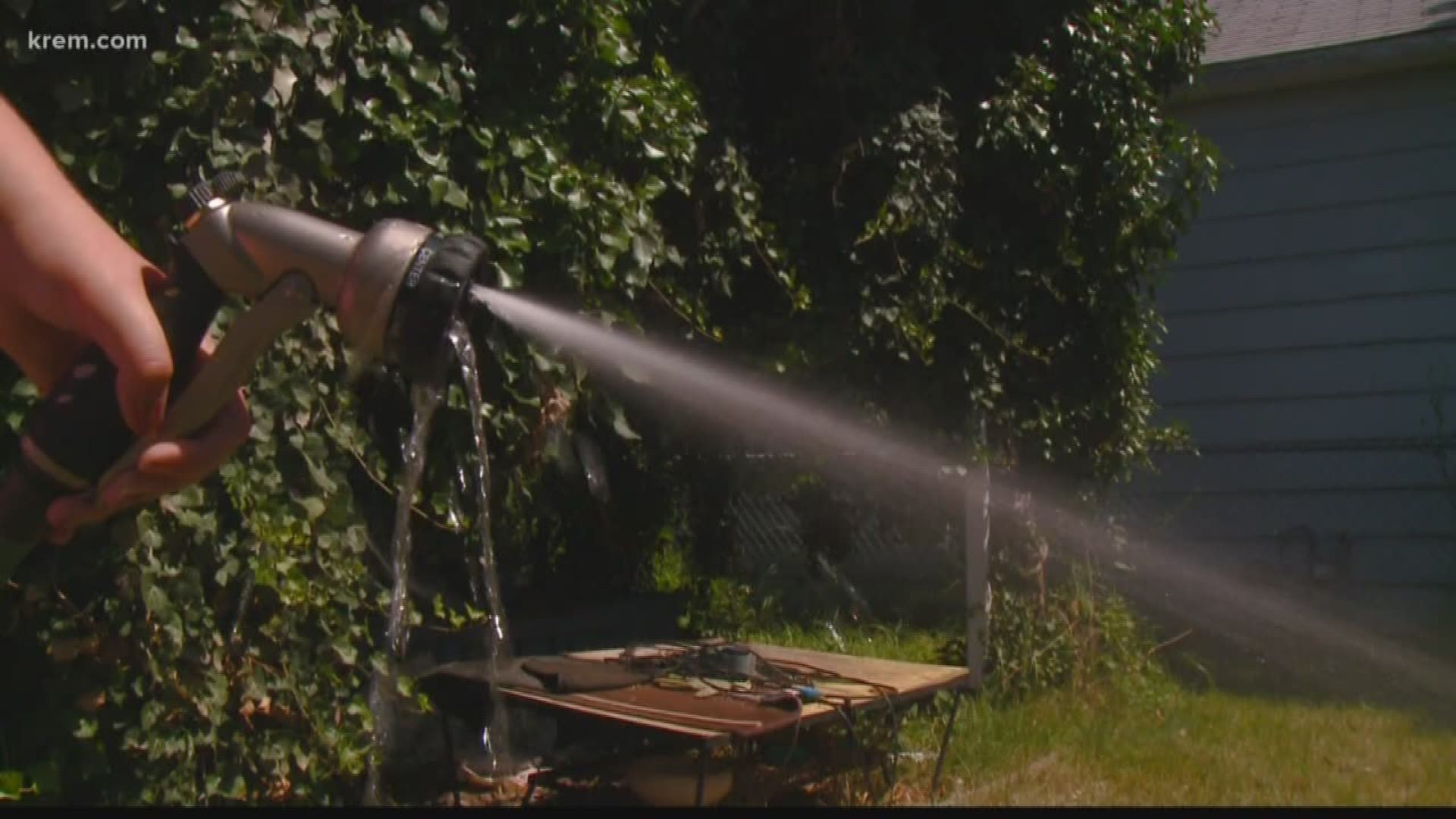SPOKANE, Wash. — After some Hillyard residents were unable to drink or cook with their water in July, the City of Spokane is looking into ways to make sure a similar incident doesn’t happen again.
The contamination occurred in the neighborhood when a commercial hydroseed truck pumping water from a hydrant allowed backflow into the water system.
Many water usage meters in the affected area had to be replaced, as they were clogged with hydroseed fibers.
The city is considering two options: installing locks on fire hydrants to prevent unauthorized access or constructing fill stations that contractors can use to access water rather than hooking up into hydrants.
City spokeswoman Marlene Feist said the city will decide what the best course of action is based on the cost and effectiveness.
She did not have an estimate for how much such technology could cost but said it would be paid for through City of Spokane Water Department revenues. However, she acknowledged that regardless, in order for the change to be effective, the cost would likely be in the million-dollar range.
Feist said a reasonable estimate of the cost of the Hillyard incident is about $50,000, though this is not exact.
Instituting more secure systems would be more an investment in assuring clean water than saving the city money, she said.
The company whose trucks allowed the backflow is still unknown, nearly six weeks after the contamination.
Feist said the incident is still under investigation with help from the Spokane Police Department, though she and Spokane Police Department spokesman Terry Preuninger both noted that it's not a formal criminal investigation.
The fact that the responsible party still hasn't come forward could ultimately land them in even more trouble.
"If you know you've caused a problem, you should tell somebody. So now it's been weeks. So that might be some of their reticence in coming forward," Feist said.
Nearby Post Falls has had locks on its hydrants for nearly 20 years.
Matthew Isch, chief operator of the city’s Water Division, said that the city physically installed locks on all of the hydrants, with each one taking a few minutes each.
Anyone who wants to use the hydrant must take out a permit with the city. An employee then inspects the vehicles for backflow protections devices and unlocks the hydrants.
The city does even share locks with the fire departments and tells them to cut it off in case of emergency.
Post Falls has tried using meters and other devices, similar to Coeur d’Alene, but found that they were often vandalized, Isch said.
“We always say [to the public], ‘If you see something that looks odd, say something,’” Isch said.
As it stands, Spokane requires companies to seek permits for hydrant access, and those permits require proof of employee training and possession of backflow prevention equipment.
But the hydrants are technically accessible to basically anybody. Without locks, all it requires are a few specialized tools to open a cap and turn on the water.


